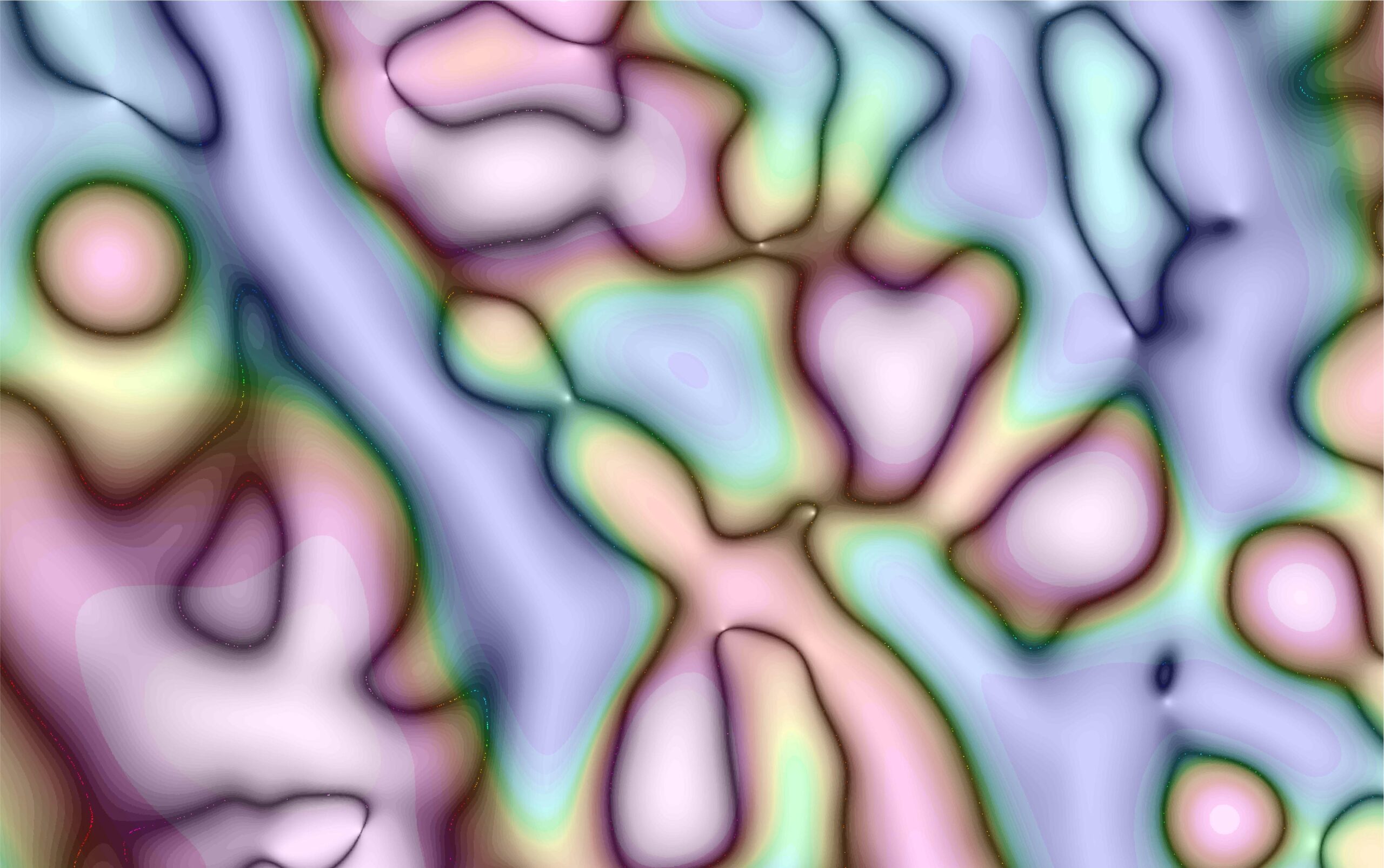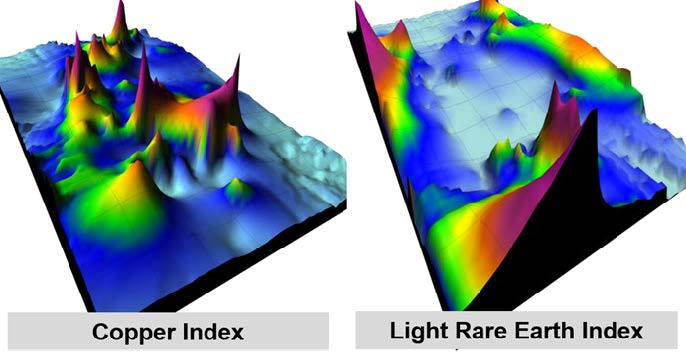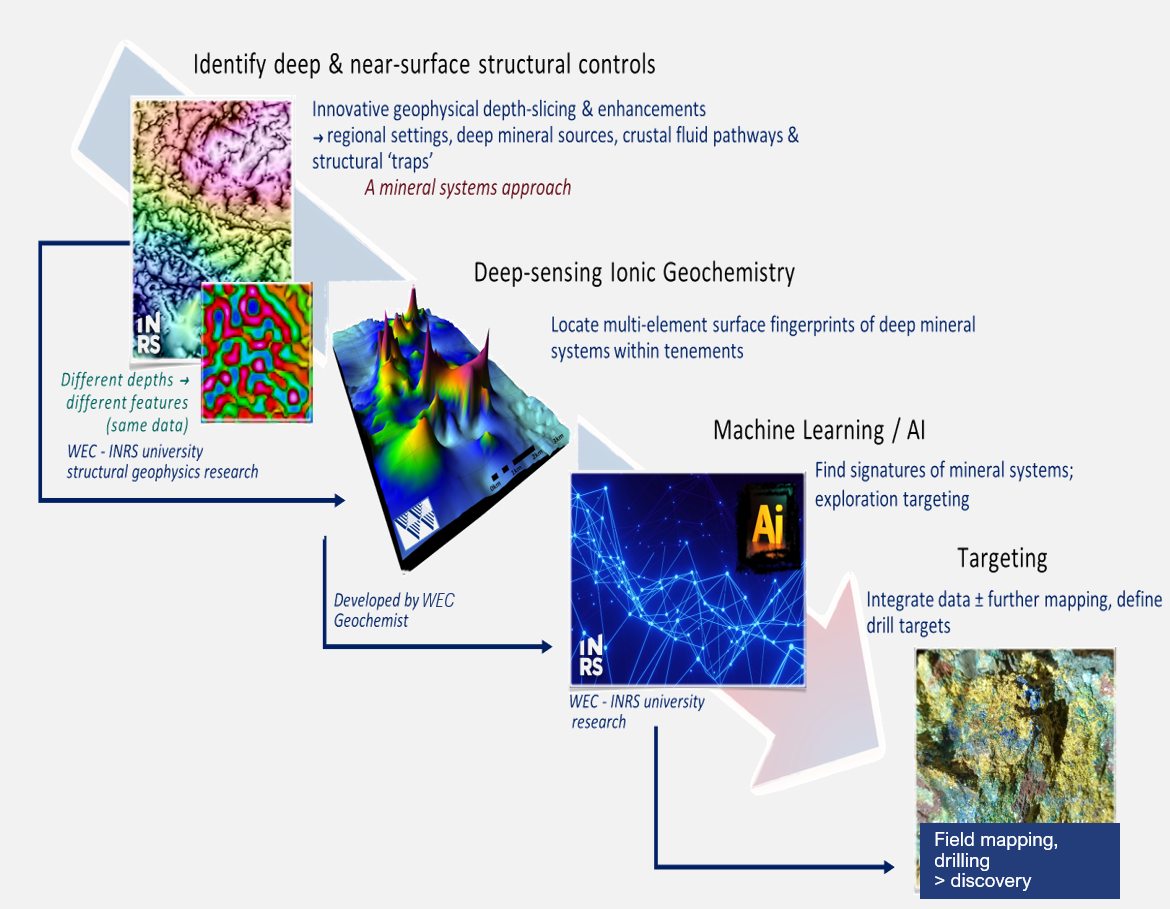EXPLORATION STRATEGY
White Energy employs advanced, and emerging, exploration knowledge and scientific understanding through its ongoing collaboration with highly skilled practitioners in the respective exploration sciences it embraces.
01
Deep Crustal Geophysics
White Energy has exclusive research agreements with Institut National de la Recherche Scientifique (INRS) to use their cutting-edge research, data sets and data analytical techniques to explore the controls of upper mantle and deep crustal structures on mineralisation in Australasia. INRS is a post-graduate research and training institution in Québec, Canada, with diversified research areas, ranking first in Canada in 2023 for research intensity.
Lyal Harris
Structural geologist & geophysicist
Over 40 years’ experience as a structural geologist and geophysicist. Currently Professor at INRS. Worked on structural controls for gold mineralisation systems and deep-seated architecture influencing the location of diverse large mineral systems on five continents.

By integrating satellite crustal data with seismic, soil sampling and geophysics data captured at surface, White Energy is increasing its chances of discovery success.
02
Deep Sensing Ionic Geochemistry
Beginning in the 1990’s in Perth, Western Australia, laboratory and field studies by geochemists Russell Birrell and Alan Mann recognised ionic element species could be collected and measured from surface soils. As critical analytical methods and protocols for instrumentation advanced, a milestone was reached in 2023 with ALS Geochemistry delivering routine element detection limits below natural background levels for over 61 elements and isotopes. This, combined with major advances in the understanding of multi-element patterns in mineral systems that can be used to vector toward deposits within them, has provided another effective exploration tool that can map metal systems and metal deposits at depth from surface.
Russell Birrell
Geochemist
Specialises in deep sensing geochemical techniques for identifying deeply buried mineral and petroleum systems. Over his +45 year career, he has held senior positions at CSIRO and a number of mining companies around the world including Director, Gold and Base Metal Exploration, Ma’aden, Government of Saudi Arabia.

Copper anomaly contained within a Light Rare Earth element depletion zone.
03
Artificial Intelligence
Artificial intelligence (AI) refers to the ability of computer systems to perform tasks which normally require human intelligence. In an operational context, the process involves generative AI, machine learning and deep learning. At an exploration level, AI can be trained to review, interrogate and assimilate a large number of data sets, integrate these data and produce outcomes e.g. data tables, 2-, 3-, and multi-dimensional maps that can be interpreted by an explorationist, and can represent areas of highest prospectivity for metal deposits within mineral systems.

04
White Energy Exploration and AI
The White Energy approach to generative exploration generates different data sets (geochemical, geophysical, other) with very large numbers of variables. Put simply, the human brain cannot integrate and process data so variable and diverse. There are two types of data processed;
- Intradisciplinary data – AI can be used to gain more useful exploration insight and outcomes from an individual data set,
- Multidisciplinary Data – integrates the individual outcomes from each discipline to build a more comprehensive interactive prospectivity map

